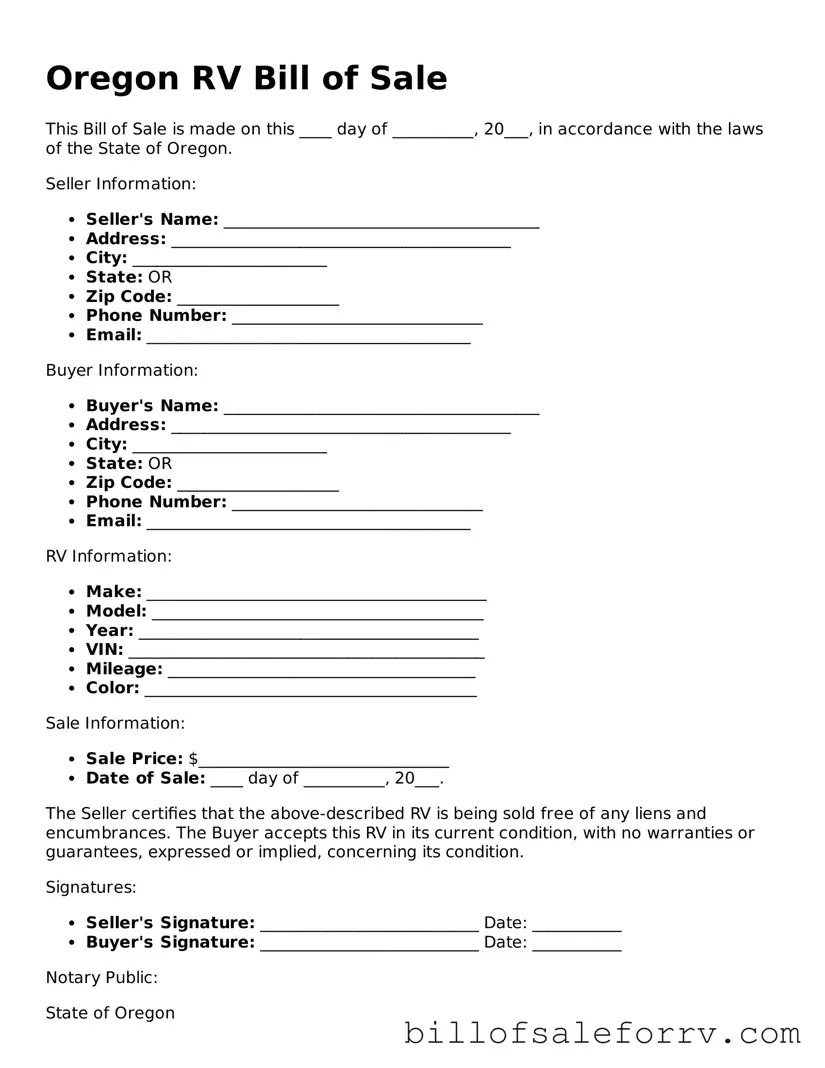Oregon RV Bill of Sale Template
The Oregon RV Bill of Sale form is a legal document that serves as proof of the sale and transfer of ownership for recreational vehicles in the state of Oregon. This form outlines essential details such as the buyer and seller's information, vehicle description, and sale price. Completing this document is crucial for both parties to ensure a smooth transaction and proper registration of the vehicle.
Launch Editor Here

Oregon RV Bill of Sale Template
Launch Editor Here
Complete the form and get on with your day
Edit and complete RV Bill of Sale online, all in minutes.
Launch Editor Here
or
⇩ RV Bill of Sale File
